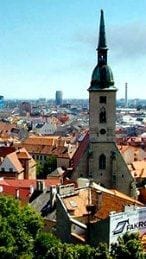Medical Schools
Medical Schools
Medical Schools are tertiary educational institutions—or part of such institutions—that teach medicine, and award professional degrees for physicians and surgeons. Such degrees include the Doctor of Medicine (MD) or Bachelor of Medicine, Bachelor of Surgery (BMBS, MBBS, MBChB). Many medical schools offer additional degrees, such as a Doctor of Philosophy, Master’s degree, a physician assistant program, or other post-secondary education.
Medical Schools
Medical schools can also employ medical researchers and operate hospitals. Around the world, criteria, structure, teaching methodology, and nature of medical programs offered at medical schools vary considerably. Medical schools are often highly competitive, using standardized entrance examinations, as well as grade point average and leadership roles, to narrow the selection criteria for candidates. In most countries, the study of medicine is completed as an undergraduate degree not requiring prerequisite undergraduate coursework. However, an increasing number of places are emerging for graduate entrants who have completed an undergraduate degree including some required courses. In the United States and Canada, almost all medical degrees are second entry degrees, and require several years of previous study at the university level.
Medical Schools
Medical degrees are awarded to medical students after the completion of their degree program, which typically lasts five or more years for the undergraduate model and four years for the graduate model. Curricula are usually divided into preclinical sciences, where students study subjects such as biochemistry, genetics, pharmacology, pathology, anatomy and physiology, among others, and clinical rotations, which usually include internal medicine, general surgery, pediatrics, psychiatry, and obstetrics and gynecology, among others.
Medical Schools
Although medical schools confer upon graduates a medical degree, a physician typically may not legally practice medicine until licensed by the local government authority. Licensing may also require passing a test, undergoing a criminal background check, checking references, paying a fee, and undergoing several years of postgraduate training. Medical schools are regulated by each country and may appear in the AVICENNA Directory for medicine or the FAIMER International Medical Education Directory.
Medical Schools
Medical Schools
Authorized representatives of the most prestigious Universities in Slovakia, Hungary, The Czech Republic, Romania, Bulgaria, Austria and Serbia in Medicine, Dentistry, Pharmacy, Veterinary Medicine and in 180 more degree programs!
Study Medicine In Slovakia in English
Study Medicine, Dentistry, Veterinary Medicine, Pharmacy in Slovakia, Hungary, The Czech Republic, Romania, Bulgaria, Austria and Serbia

Slovakia officially the Slovak Republic is a country in Central Europe. It is bordered by the Czech Republic and Austria to the west, Poland to the north, Ukraine to the east and Hungary to the south. The capital and largest city is Bratislava.
Slovakia is a high-income advanced economy with one of the fastest growth rates in the European Union and the OECD. The country joined the European Union in 2004 and the Eurozone on 1 January 2009. Slovakia is also a member of the Schengen Area, NATO, the United Nations, the OECD and the WTO.
Study Medicine in Slovakia : Comenius Medicine University , Pavol Jozef Safárik University of Medicine , Jessenius University of Medicine
Study Dentistry in Slovakia : Comenius University of Dentistry , Pavol Jozef Safárik University of Dentistry
Study Veterinary Medicine in Slovakia : University of Veterinary Medicine in Kosice
Study Pharmacy in Slovakia : Comenius University of Pharmacy
Study Medicine In Bulgaria in English
Study Medicine, Dentistry, Veterinary Medicine, Pharmacy in Slovakia, Hungary, The Czech Republic, Romania, Bulgaria, Austria and Serbia

Bulgaria officially the Republic of Bulgaria is a country in southeastern Europe.
It is a member of the European Union, NATO, and the Council of Europe; a founding state of the Organization for Security and Co-operation in Europe (OSCE); and has taken a seat at the UN Security Council three times.
Study Medicine in Bulgaria in English : University of Medicine in Varna , University of Medicine in Sofia , University of Medicine in Plovdiv , St. Kliment Ohridski Medical University in Sofia
Study Dentistry in Bulgaria in English : University of Dentistry in Sofia , University of Dentistry in Varna , Plovdiv Medical University of Dentistry
Study Veterinary Medicine in Bulgaria in English : Veterinary Medicine in Sofia , Veterinary Medicine in Stara Zagora
Other Fields of Study in Bulgaria in English : Nurse Studies , Midwife Studies , Naval Academy
Study Medicine In Romania in English
Study Medicine, Dentistry, Veterinary Medicine, Pharmacy in Slovakia, Hungary, The Czech Republic, Romania, Bulgaria, Austria and Serbia

Romania is the seventh most populous member state of the European Union. Its capital and largest city, Bucharest, is the sixth largest city in the EU.
It has been a member of NATO since 2004, and part of the European Union since 2007. Around 90% of the population identify themselves as Eastern Orthodox Christians, and are native speakers of Romanian. With a rich cultural history, Romania has been the home of influential artists, musicians, inventors and sportsmen, and features a variety of tourist attractions.
Study Medicine in Romania : Gr. T. Popa University of Medicine, Carol Davila University of Medicine, Iuliu Hațieganu Medicine University, Ovidius University of Medicine
Study Dentistry in Romania : Gr. T. Popa University of Dentistry, Luliu Hațieganu University of Dentistry
Study Veterinary Medicine in Romania : University of Veterinary Medicine in Cluj Napoka
Study Pharmacy in Romania : Gr. T. Popa University of Pharmacy, Luliu Hațieganu University of Pharmacy
Study Medicine In Austria in German
Study Medicine, Dentistry, Veterinary Medicine, Pharmacy in Slovakia, Hungary, The Czech Republic, Romania, Bulgaria, Austria and Serbia

Austria officially the Republic of Austria, is a federal republic and a landlocked country of over 8.5 million people inCentral Europe. The majority of the population speak local Bavarian dialects of German as their native language, and Austrian German in its standard form is the country’s official language.
Austria is one of the richest countries in the world. The country has developed a high standard of living and in 2014 was ranked 21st in the world for its Human Development Index. Austria has been a member of the United Nations since 1955, joined the European Union in 1995, and is a founder of the OECD. Austria also signed the Schengen Agreement in 1995 and adopted the European currency, the Euro, in 1999.
Study Medicine in Austria in German : Medical University of Vienna
Study Dentistry in Austria in German : Medical University of Dentistry
Study Pharmacy in Austria in German : University of Pharmacy
Study Veterinary Medicine in Austria in German : University of Veterinary Medicine
180 More Degree Programs: University of Vienna
Study Medicine In The Czech Republic in English
Study Medicine, Dentistry, Veterinary Medicine, Pharmacy in Slovakia, Hungary, The Czech Republic, Romania, Bulgaria, Austria and Serbia

The Czech Republic is a landlocked country in Central Europe bordered by Germany to the west, Austria to the south, Slovakia to the east and Poland to the northeast. The capital and largest city, Prague, has over 1.2 million residents.
The Czech Republic also ranks as the 11th most peaceful country, while achieving strong performance in democratic governance. It is a member of the United Nations, the European Union, NATO, the OECD, the OSCEand the Council of Europe.
Study Pharmaceutical Sciences in The Czech Republic : University of Pharmaceutical Sciences
Study Veterinary Medicine in The Czech Republic : University of Veterinary Medicine
Study Life Sciences in The Czech Republic : Czech University of Life Sciences in Prague
Study Medicine In Hungary in English
Study Medicine, Dentistry, Veterinary Medicine, Pharmacy in Slovakia, Hungary, The Czech Republic, Romania, Bulgaria, Austria and Serbia

Hungary formally, until 2012, the Republic of Hungary is a landlocked country in Central Europe. The country’s capital and largest city is Budapest. Hungary is a member of the European Union, NATO, the OECD, the Visegrád Group, and the Schengen Area. The official language is Hungarian, which is the most widely spoken non-Indo-European language in Europe.
Study Medicine in Hungary : Semmelweis University of Medicine , University of Medicine in Szeged , University of Medicine in Pecs
Study Dentistry in Hungary : Semmelweis University of Dentistry , University of Dentistry in Szeged , University of Dentistry in Pecs
Study Medicine In Serbia in English
Study Medicine, Dentistry, Veterinary Medicine, Pharmacy in Slovakia, Hungary, The Czech Republic, Romania, Bulgaria, Austria and Serbia

Serbia, officially the Republic of Serbia is a sovereign state situated at the crossroads between Central and Southeast Europe.
Serbia is a member of the UN, CoE, OSCE, PfP, BSEC, and CEFTA. It is also an official candidate for membership in the European Union which is negotiating its EU accession, acceding country to the WTO and is a militarily neutral state.
Study Medicine in Serbia : University of Medicine in Novi Sad
Study Dentistry in Serbia : University of Dentistry in Novi Sad
Study Pharmacy in Serbia : University of Pharmacy in Novi Sad



